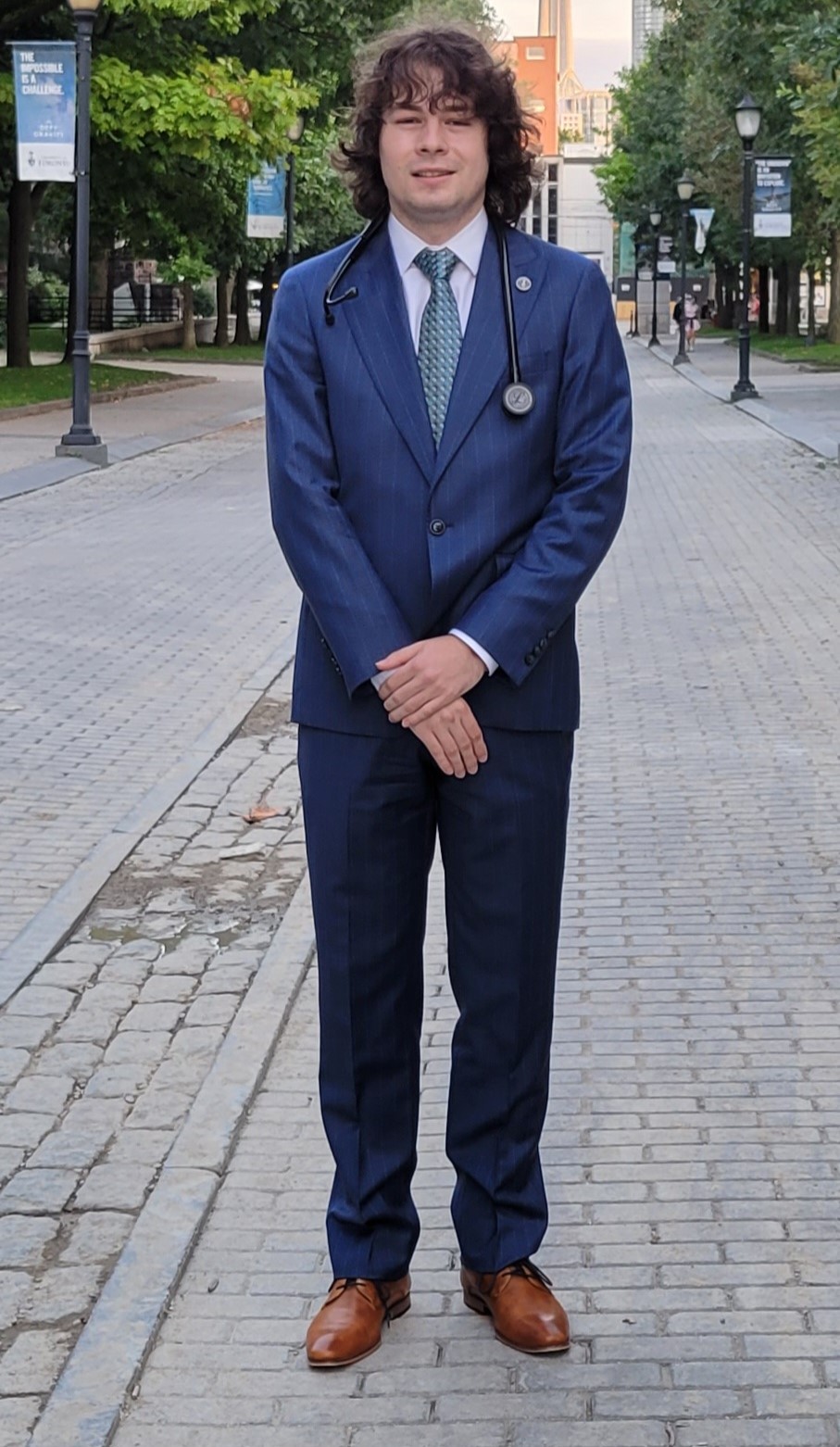Martin Profant – 2024 Studentship Recipient
 Martin Profant –
Martin Profant –
Medical Student, Toronto University
Supervisor: Dr. Sunit Das
Project: “Investigating the Meningeal Immune Landscape in Patients with GBM”
Generously funded by St. George Legion
“Being awarded a Brain Tumour Research Studentship means the chance to pursue potentially lifesaving research. As an aspiring physician-scientist looking to integrate clinical medicine and scientific research, I have been searching for an area of study in which to pursue my own intellectual curiosity and also the potential to positively impact patient outcomes. I vividly recall my experiences as a medical student in the neurosurgery operating room and neuro-oncology clinic, where I witnessed first-hand the devastating effects brain tumours can have on individual patients. However, it is also here that I met physicians and patients motivated to engage in research to discover tomorrow’s therapies. It was these experiences that propelled me on the trajectory to working in brain tumour research. Using my previous scientific skills in neuroscience and immunology, as well as the expertise of the Dr. Das lab, I hope to elucidate the oncological and immune mechanisms that drive brain tumour pathogenesis from a single cell lens. Donors to the Brain Tumour Foundation of Canada through their contributions have made the Brain Tumour Research Studentship possible. Donors have not only directly supported my research work today, but through the experiences and skills I gain over the course of this project, I will be best prepared to become a future leader in the field of brain tumour research. Special Thank you to, St. George Legion for making this award possible.”
Midpoint Report – September 2024
This summer I spent time searching the literature to become familiar with the meningeal immune system and appraising the current state knowledge in this field. I also began writing detailed protocols for collecting human dura (meninge) and matched tumour tissue from GBM patients undergoing neurosurgical resection of their tumour. These protocols required extensive literature searches and coordinating various research teams. I was able to write up protocols for tissue collection to processing and downstream analysis, which are now being optimized. We plan to use single cell transcriptomic analysis of immune cells in the meninges to better characterize the potential role of these immune cells in GBM. In essence, we are looking at the immune cell state which informs us what its function may be in the GBM context. This requires significant bioinformatic data analysis and thus this summer I have been learning how to analyze this type of data and have begun analyzing existing datasets in the lab to identify immune cell populations within GBM tumours, so when the meninge dataset is ready next summer I may compare how immune cells in the meninges may resemble those in the tumour. This will help us understand how meningeal immune cells may affect tumour growth and disease spread. Overall, this summer has been very fundamental in laying the foundation for this study and ensuring I have developed the skills to execute and analyze the data from this study.
Over the course of the fall and winter, I am continuing to work on this project and analyzing the existing datasets. At the same time, we should be collecting the first meninge samples from patients in the coming months and by next summer there should a reasonably sized cohort of samples for me to begin studying. As mentioned, this project will then evolve into expanding on the data generated next summer to form the basis of my PhD, in which I will have more time to explore the questions asked here. By leveraging new technologies and collaborations, I hope to explore this untouched connection between the meninges and GBM to hopeful provide novel insight to how this disease arises and how we may intervene with therapies.